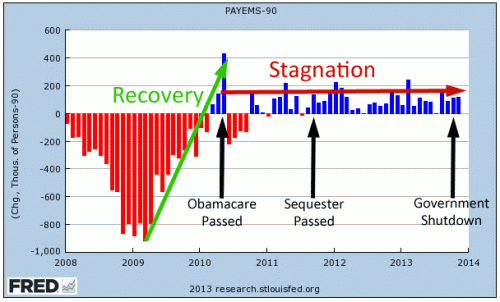A Good Roundup on the Minimum Wage
David Brooks has what looks to be a pretty even-handed piece on what academic work shows on the minimum wage. A few highlights:
Recently, Michael Wither and Jeffrey Clemens of the University of California, San Diego looked at data from the 2007 federal minimum-wage hike and found that it reduced the national employment-to-population ratio by 0.7 percentage points (which is actually a lot), and led to a six percentage point decrease in the likelihood that a low-wage worker would have a job.
Because low-wage workers get less work experience under a higher minimum-wage regime, they are less likely to transition to higher-wage jobs down the road. Wither and Clemens found that two years later, workers’ chances of making $1,500 a month was reduced by five percentage points.
Many economists have pointed out that as a poverty-fighting measure the minimum wage is horribly targeted. A 2010 study by Joseph Sabia and Richard Burkhauser found that only 11.3 percent of workers who would benefit from raising the wage to $9.50 an hour would come from poor households. An earlier study by Sabia found that single mothers’ employment dropped 6 percent for every 10 percent increase in the minimum wage....
What we have, in sum, is a very complicated situation. If we do raise the minimum wage a lot of people will clearly benefit and a lot of people will clearly be hurt. The most objective and broadest bits of evidence provoke ambivalence. One survey of economists by the University of Chicago found that 59 percent believed that a rise to $9 an hour would make it “noticeably harder” for poor people to find work. But a slight majority also thought the hike would be worthwhile for those in jobs. A study by the Congressional Budget Office found that a hike to $10.10 might lift 900,000 out of poverty but cost roughly 500,000 jobs.
So 900,000 would get up to a 25-40% raise while 500,000 would get a 100% cut.
